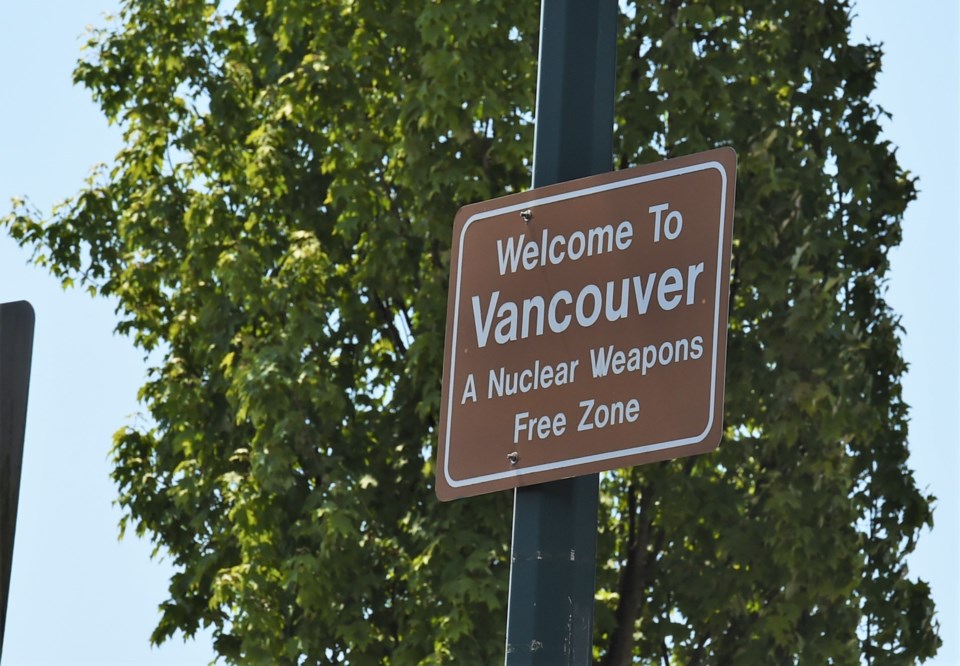The City of Â鶹´«Ã½Ó³»is, officially, a nuclear weapons-free zone.
That makes sense, since Canada doesn't have any nuclear weapons. And the City of Vancouver, with no nuclear systems or significant military bases, would be a strange place to store them.
However, there are at least two signs, one on the Lougheed Highway and one on McGill Street near the Iron Workers Memorial Bridge, announcing that the city isn't home to any of the ultra-destructive weapons.
And no, it's not because North Â鶹´«Ã½Ó³»or Burnaby are planning an invasion.
It's because back in the early 80s, Vancouverites protested the federal government's plan to allow the United States to test weapons in Canada. That, mixed with anti-nuclear sentiments, led to the city taking an official stance on nukes.
"In 1983, City Council voted to designate Â鶹´«Ã½Ó³»a nuclear weapon-free zone, which was largely symbolic," a City spokesperson tells V.I.A.
To mark the message, signs were put around the city.
And while Canada doesn't have any nuclear weapons, our southern neighbours have a couple. It's estimated that in 1975 there were nearly afloat somewhere in the world. However, policies changed in the early 1990s and US Navy surface ships were no longer nuclear capable.
While the signs were kept up for a couple of decades, they've slowly been disappearing since the 2010 Olympics and are no longer being replaced. The city doesn't have a record of where they were but says they were generally at the entrances of the city.
You've probably seen the signs before, but they may not have caught your attention. The signs themselves are not very eye-grabbing, except for the words "nuclear weapon." The simple brown and white design isn't very dramatic, and they aren't very large, attached to lamp posts.
The last signs won't last much longer, in all likelihood. City signs have a lifespan of about 10 to 12 years.



